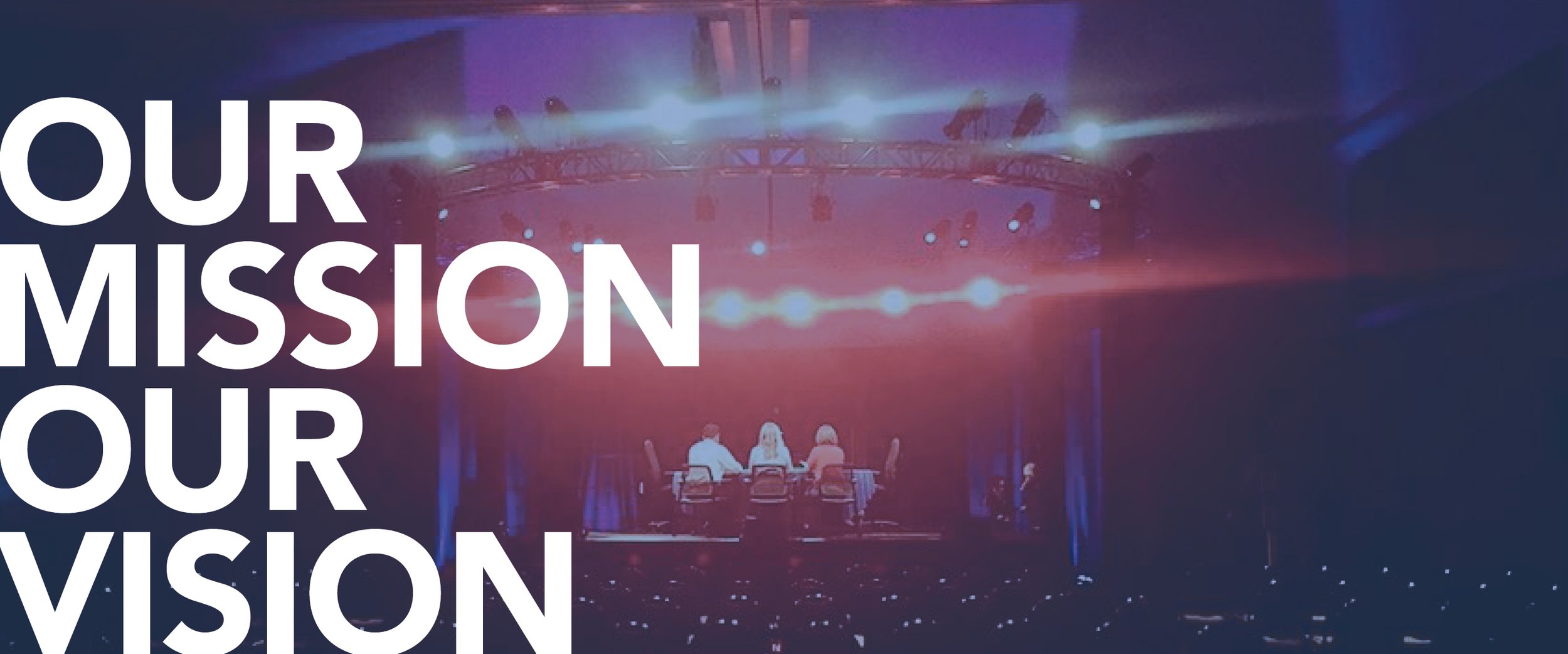Our mission is to foster fair and substantive debates that encourage participation in our democracy. Our vision is of a stronger Ohio, with well-informed voters and highly qualified public servants, candidates, and elected officials.
WHY WE FORMED
In 2018, after many electoral cycles spent working with campaigns and political parties to organize debates, stakeholders, and civic groups from across Ohio noticed a glaring need: when it came to debates, there was no agreed upon authority, no shared sense of what best practices were, and no clear idea as to what debates ought to look like or strive to accomplish. In practice, this lack of accountability left organizations unprepared for the responsibility and unfamiliar with the work of presenting high quality political debates.
Given these factors, a group of civic and media organizations joined with colleges and universities to form the nonpartisan Ohio Debate Commission, whose goal is to convene debates of the highest quality for the highest offices in Ohio. We believe that well-managed debates play a critical role in informing citizens about the issues and candidates on the ballot. We also believe that debates ought to be worthy of the sacrifice public service and candidacy represents. With this effort, the Commission aims to mobilize an informed and empowered electorate and honor the work of those who run for office.
The Ohio Debate Commission became a 501(c)(3) organization in 2020 and has been sustained through in-kind and charitable contributions. The ODC receives no government funding.
OUR TEAM
Robert Shenton
Executive Director
Jerry L. Miller, Ph.D.
Board President
Professor, School of Communication Studies, Ohio University, Athens, Ohio
Jerry is a professor of communication in The School of Communication Studies at Ohio University. Dr. Miller’s research and instruction is in the area of political communication, particularly political advertising and debate. His research and instruction has focused on place-based pedagogy, a systems perspective exposing how “place” both influences and is influenced by community dialogue and action.
BOARD OF DIRECTORS
-
Lucas Camuso-Stall
Director of Government Relations and Advocacy, Toledo Lucas County Public Library
-
Cyndra Cole
Ray C. Bliss Institute of Applied Politics at The University of Akron, Assistant Lecturer and Fellow
-
James N. Crutchfield
Editor-in-Chief, The Marshall Project-Cleveland newsroom
Former President and Publisher, Akron Beacon Journal and Ohio.com
-
Eddie Harrell
Radio One, Regional Vice President of Ohio Markets (Cincinnati, Cleveland, Columbus)
-
Christine Merritt (Treasurer)
President, Ohio Association of Broadcasters, Columbus
-
Jen Miller
League of Women Voters of Ohio, Executive Director, Columbus
-
Jerry L. Miller, Ph.D. (President)
School of Communication Studies, Ohio University, Professor and Associate Director for Undergraduate Studies, Athens, Ohio
-
Dan Moulthrop (Immediate Past President)
CEO, The City Club of Cleveland
-
Monica Nieporte
Ohio News Media Association, President and Executive Director, Columbus
-
Mark Rosenberger (Secretary)
Chief Content Officer, ideastream, Cleveland
-
Anthony Shoemaker
Ohio Bureau Chief USA TODAY Network
-
Karl Turner
Spectrum News 1, News Director, Columbus
State Debate Coalition
The ODC is a co-founder of the umbrella organization, the State Debate Coalition, which unites statewide collaborations that sponsor and produce open, unbiased, and substantive candidate debates at the state and federal levels within various states. The SDC brings these organizations together to share best practices, glean new ideas, and help address similar challenges regarding the hosting of candidate debates. It also facilitates the creation of new statewide debate collaborations by assisting individuals and organizations in the formation of new statewide entities.



